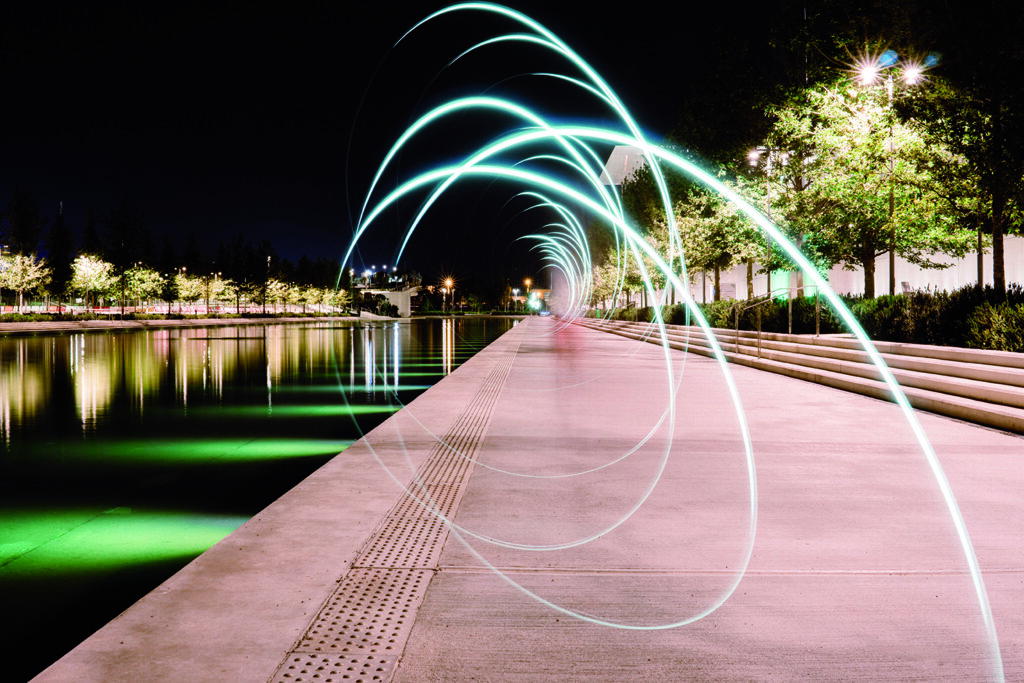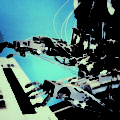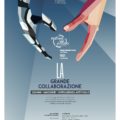Applying it to organizational creativity can lead to the development of new products, new ideas and new methods of collaboration. And even new ways of thinking.
by Margherita Pagani and Igor Jablokov

Start a conversation about the role of artificial intelligence (AI) in the workplace and, most likely, the fear that technology could replace workers will quickly emerge. Yet we know that in this new age of automation, more new jobs are expected to be created than replaced. In the meantime, humans want to continue developing, leading and creating: can artificial intelligence help in this task? How can it foster organizational creativity and leadership?
There is a role that AI can play which is less investigated and which is however less risky since the human remains in the foreground: that of connector, facilitator and even muse.
The application of artificial intelligence to organizational creativity can lead to the development of new products, new ideas and methods of cooperation and even new ways of think. We are also witnessing a modern version of natural selection, where organizations that adopt artificial intelligence to build a new kind of creative “connective tissue” will be the ones to evolve and open up to the next generation of expansive, modern leaders.
AI systems can replace boring tasks and leave the most strategic and significant part of the work to the human worker. AI can too accelerate and develop creativity in the organization by suggesting new directions, inspiring new ideas and even creating new products. Instead of replacing human creativity, AI can create a more enjoyable and productive experience.
Three crucial steps
If Steve Jobs said: "The computer is the bicycle of the mind", then artificial intelligence is now its racing machine. We conducted several interviews with managers working with AI systems in creative organizational environments. From both our perspectives (as inventor of the technology that inspired Amazon's Alexa and associate dean of a business school focused on artificial intelligence applied to business), we have observed multiple ways of using AI to facilitate the creative experience. Organizations and their leaders therefore need to pay close attention to how AI can help their workforce to optimize your humanity, not replace it, and train the next generation of executives who will automatically adopt this way of thinking.
AI is accelerating, expanding and (if we dare to personify it) encouraging creativity through three phases of the creative process.
- A creative tool
Human beings and, especially in the business context, employees are intrinsically driven to discover – for the purpose of form, function or, exceptionally, both. But there are circumstances necessary for discovery: tools, time, access to information and experience, physical and/or mental capabilities. The opportunity for AI is reduce friction points to discovery and even allow it to be institutionalized.
Digital devices and features such as interactive touch screens and speech recognition have exposed more people to new learning opportunities, and the latter appears essential to fuel the virtuous cycle of discovery. AI-powered knowledge management can transform static documents into voice-activated interactive experiences to instantly unlock information for thousands of people.
Generative AI applies algorithms to create content, enhance images, write stories and even generate influencers with over a million followers. This has a significant impact on the creative process of designers. Amazingly, the software doesn't require hand coding, which greatly expands the availability of this cutting-edge feature. - An accelerator of the creative process
AI is already collaborating with artists and designers for stimulate new ideas and solutions, introducing new designs to the market.
Recommendation engines were one of the first applications of artificial intelligence, now widely used. Initially used in consumer contexts to offer sales products consistent with preferences and such as to engage the attention of users on their sites, they quickly evolved into products that help employees make decisions and build relationships.
AI writing assistance tools have also been developed to accelerate productivity and ease the discomfort associated with what some consider a difficult and daunting task. However, they generate a surprising byproduct: the inspiration. - A facilitator of consumption
Artificial intelligence systems applied to digital advertising have created the revolutionary concept of customization, which allows organizations and individuals to control when, how and which targets to target.
One example: STAR Labs, backed by Samsung, has introduced NEON, which claims to be the world's first “artificial human,” a digital avatar capable of mimicking human appearance and emotion. In addition to being models for marketing campaigns, these avatars are familiar virtual assistants in human form who can teach, provide information or help perform tasks. At the same time, these tools collect customer insights and help marketing managers be more creative. Like intelligent virtual assistants, they can also inspire product innovation and impact business performance by enabling you to listen and respond to customer needs using natural language.
Going even further, the transformative power of AI can change the concept of language as we know it and build a 'new tower of Babel'. Ultimately, it doesn't matter in which language the information we need was obtained; this will be achievable through an invisible AI language common to all.
Towards more creative companies?
We believe the benefits businesses will gain from AI will be proportional to their usage goals. That's why we recommend greater attention to artificial intelligence technologies of the augmented type: applications to assist humans, intended to relieve them of routine and standard tasks, leaving more time for more creative tasks.
Managers need to evaluate AI through the human lens and formulate the arguments for how to influence organizational creativity:
- Embrace the optimism of artificial intelligence: AI will enable future managers to be less mechanical (since technology can accomplish standard and routine tasks) but more focused on problem solving and this is where human beings excel and generate success;
- Evaluate AI applications based on how they will improve the experience of current employees and customers. As companies grow, they risk over-correcting innovation and mechanization and ultimately dehumanizing their organizations.
- Foster augmented intelligence applications, as they will help them attract the best talent. Job seekers and employees will know they can focus on meaningful, creative and challenging work that automation cannot address.
- Investing in institutional knowledge as a true asset of the company. The seeds of new products and services reside there. AI-powered knowledge management can capture that knowledge and make it readily available for innovation.
WE AGREE with the thought of Tom Allen, founder of The AI Journal, when he said: «I am confident that, ultimately, the changes brought about by AI will improve people's lives. AI can be a force for good in this scary new world we are entering. It can help us be more efficient, it can help us develop new products and services, and it can help us change our business models for the better."
Margherita Pagani, Professor of Artificial Intelligence in Marketing at Skema Business School (Paris), Associate Dean of Skema AI School for Business and Scientific Director of the Artificial Intelligence Research Center for Sustainable Value. He recently published the book Artificial intelligence for sustainable value creation (Edward Elgar, 2021) and numerous publications on the impact of digital technology and artificial intelligence on consumer behavior and digital ecosystems.
Igor Yablokov, CEO of the artificial intelligence company Pryon, based in Raleigh (North Carolina). A former Pennsylvania State University engineer, he also holds an MBA from the University of North Carolina. The technology created by his former company, which was acquired by Amazon, today serves as the basis for the Alexa voice assistant.






